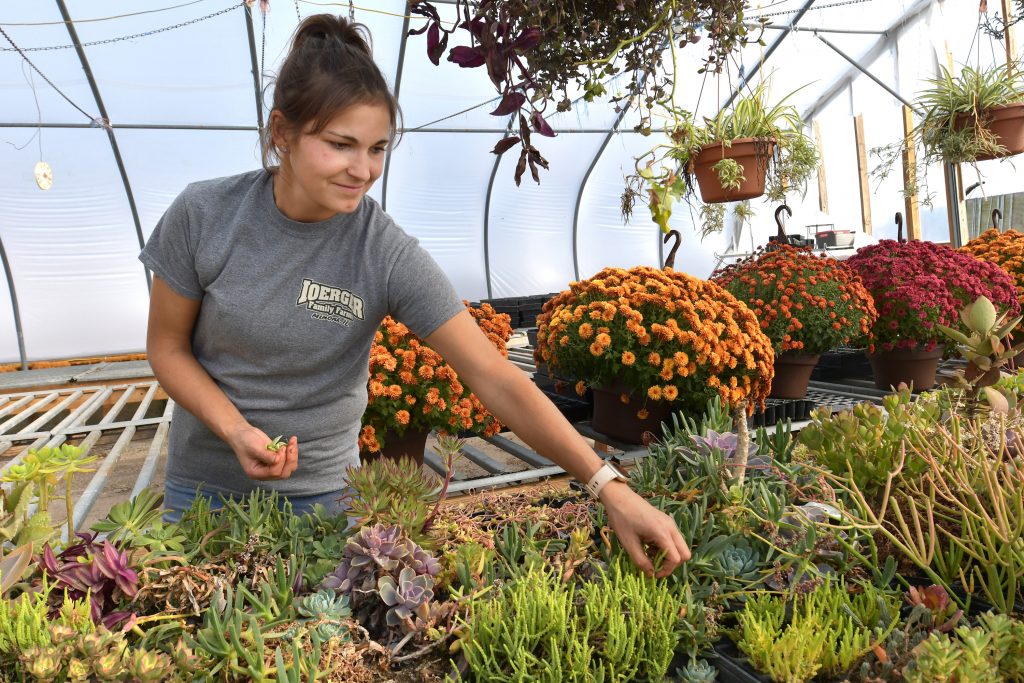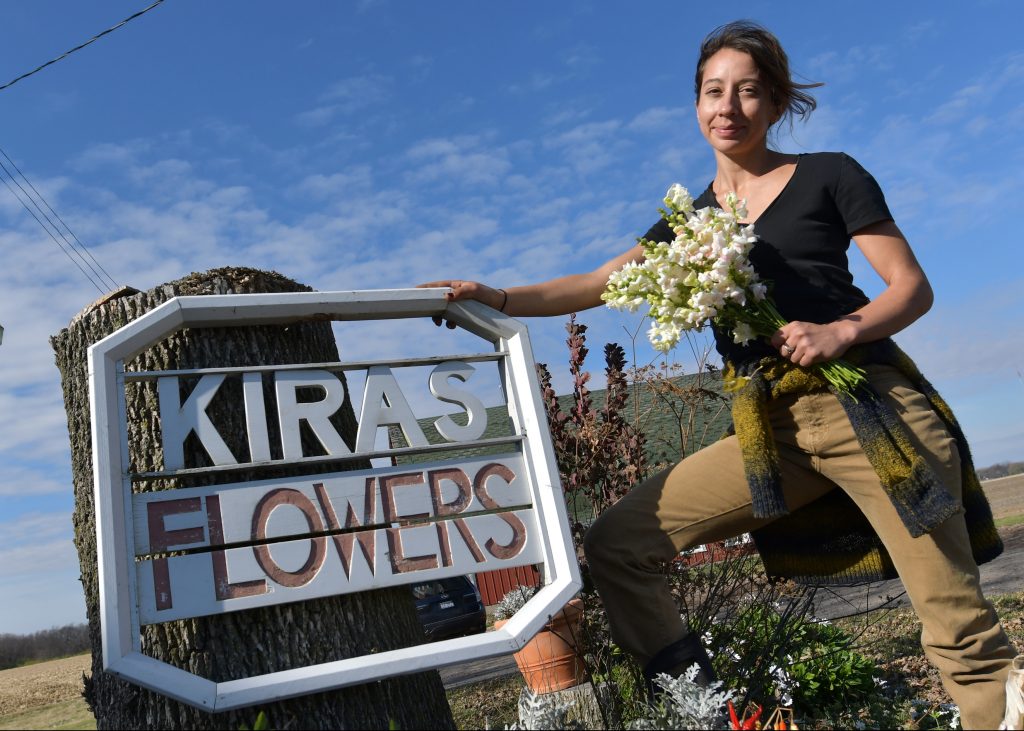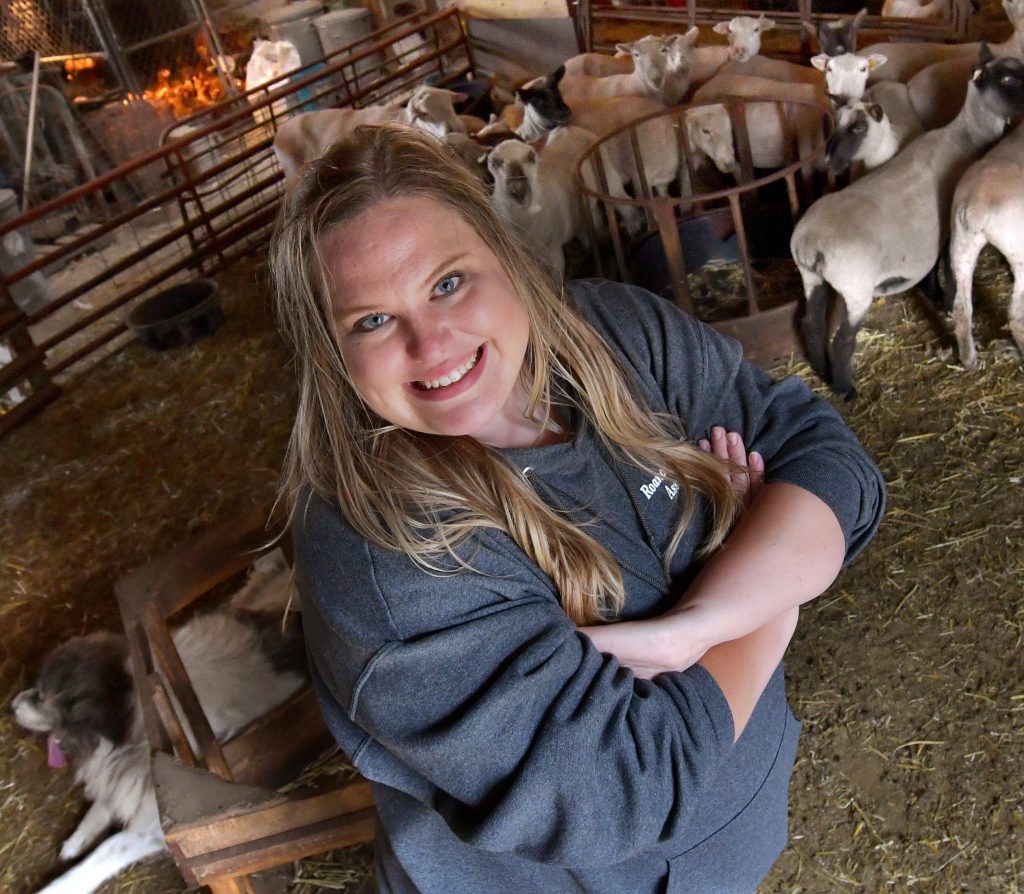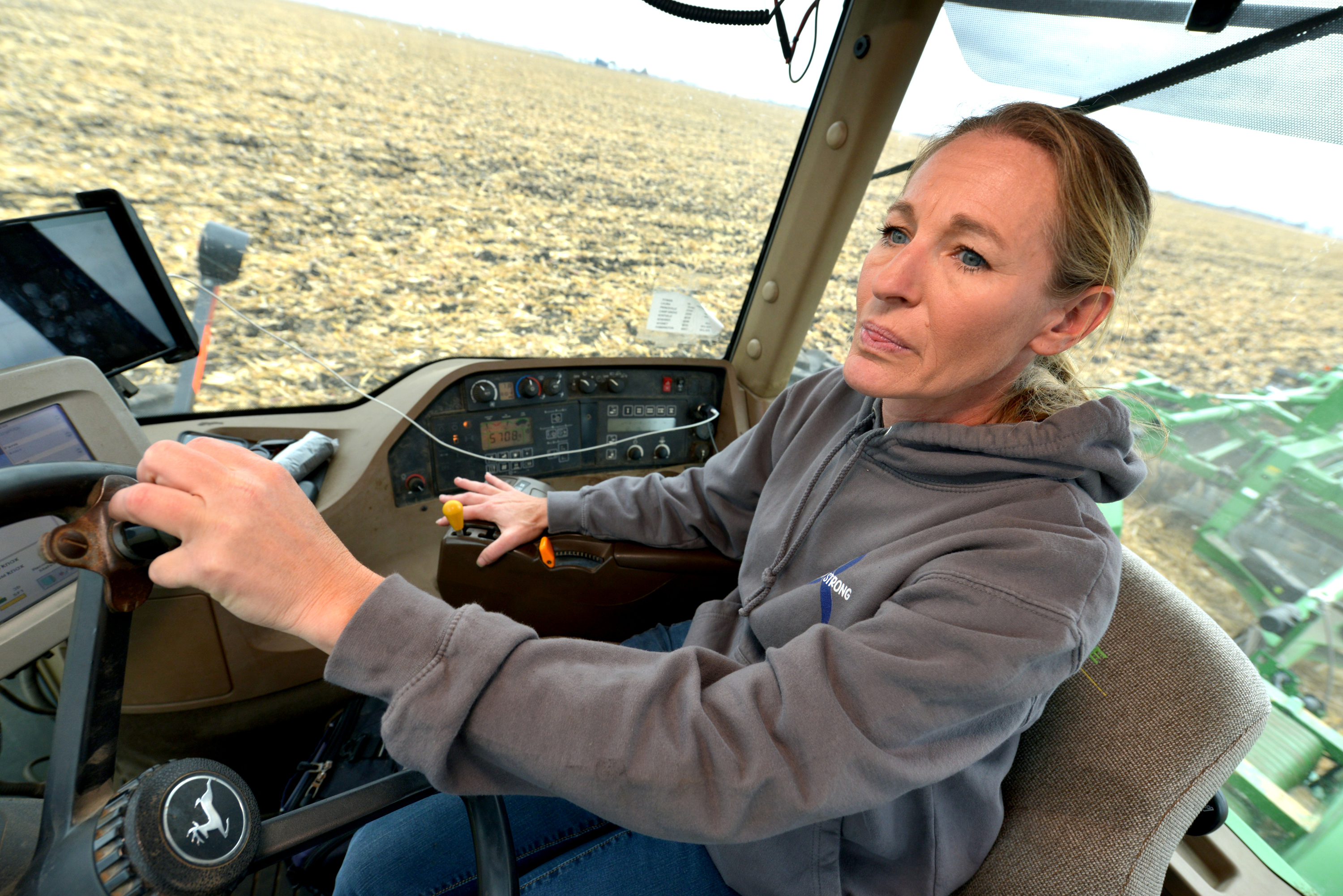Anya Irons developed her interest in agriculture while growing up in a Russian orphanage. “I spent a lot of time in the garden,” she said.
When she was 15, she was adopted by Lowell and Janet Ioerger, who operated a grain farm in Minonk. As they say, ostal’noye uzhe istoriya—the rest is history, that is.
“This family chose me,” Irons said. “The first year was tough with no English.”

But Anya learned. Now 34 and married with two young daughters of her own, Irons runs the Triple I Garden Shop as part of the Ioergers’ corn/soybean operation.
“Now my favorite part of the business is communicating with people at the farmer’s market. I learn a lot,” she said. Irons grows vegetables, fruits and flowers on the 15-acre spread. When she’s not tending the fields, she’s organizing one of several greenhouses on the property or freeze-drying items such as mushrooms and sweet potatoes for sale in her store.
Her remarkable backstory aside, Irons is part of a growing phenomenon in central Illinois of female farmers plowing full-speed ahead in an industry traditionally dominated by men. Farming is a year-round endeavor for Irons, who starts planting in the greenhouse in December.
Kira Santiago, who runs Kira’s Flowers in East Peoria, refers to Irons as “my dahlia girl.” The two women are close friends and part of an expanding flower network in central Illinois, said Santiago, who hopes to develop that network further to provide area consumers with flowers grown in the Midwest. Most flowers on the market today are produced in South America, where some farms continue to use pesticides restricted in the United States, she said.

Although she grew up on an organic farm in Eureka run by her mother, Teresa Santiago, Kira said she and her two sisters weren’t initially sold on the idea of farm labor. “We complained a lot but we did the work,” she said.
But Santiago came around after spending some time in Boston and hearing about a successful flower farm in Seattle.
“I’m coming home and I’m going to grow flowers,” she told her bewildered mother. That was eight years ago.
Today, Kira’s Flowers operates a successful flower CSA, supplying weddings and doing business at the Riverfront Farmer’s Market in Downtown Peoria. “The community has really responded,” said Santiago, 32.
Women have always been a vital cog in the nation’s agricultural machine, though traditionally playing second fiddle to a spouse or other family members, noted Christine Belless, program coordinator with the University of Illinois Extension for Fulton, Mason, Peoria and Tazewell counties.
“But I believe today we hear and see more women in the ag industry making big financial decisions,” she said.
“Women have generally thought of their role as secondary but that is not the case,” added Ellen Dearden of Morton, an agricultural analyst since 1980. “More and more ladies are the primary farmers in the operation.”
Cheryl Walsh, who operates a large sow farm in Bradford, is an example of a woman who has taken on a leadership role in the agricultural community. A former vice president of the Peoria County Farm Bureau, Walsh will serve as president of the Illinois Pork Producers in 2024.
“I do see more women getting involved in the agriculture industry,” she said. Walsh also is a big believer in helping educate children about where their food originates. As part of the Illinois Farm Bureau’s “Ag in the Classroom” program, she likes to bring a baby pig into schools to give city kids a hands-on experience with a live farm animal.

Ali Gibbs, 30, was one of those kids. She grew up in Bloomington with no farm experience. Now she confidently runs a combine at the Gibbs family farm in Benson.
“The only thing I knew how to do when it came to farming was how to hold up a sign at the grain elevator. But every year I’ve pushed myself to learn more about the agriculture industry,” she said.
Marrying into a farm family when she said “I do” to Nathan Gibbs has provided her a whole new outlook, she said. “It’s like (farming) was in my blood.”
Ali’s farm experience extends beyond raising corn and soybeans, the Gibbs family staple. There are chickens, horses and sheep to tend, even a couple of alpaca who protect the sheep from coyotes, she said.
Women also are involved in farm-related businesses. Two McLean County women started Farm to Wick, a do-it-yourself, custom candle business using soy wax that sprung out of the pandemic in 2020.
“People were isolated for a year. We knew they needed an activity,” said one of them, Alice Long of Stanford, a 59-year-old grandmother who partnered with Amy Manahan, 47, a resident of Shirley who works for the Growmark seed division in Bloomington.
Long jokes that her partner “burns the candle at both ends” by taking on the mobile candle operation along with a full-time job. Manahan says she has no regrets. “It’s a blessing to reach different people at candle events,” she said.
Along with serving as a board member on the Peoria County Farm Bureau, Kiersten Sheets is involved with another kind of farming: solar. An employee of Trajectory Energy Partners, Sheets said the federal funding recently put in place to stimulate solar and wind projects will only increase opportunities for land-owning farm families.
As chairperson of the Farm Bureau’s local affairs committee, Sheets said events are planned year-round to educate area farmers on everything from beekeeping to woodland management.
Dana Vollmer, development director for the Land Connection, a Champaign-based organization that seeks to save farmland and train new farmers, said women are also involved in agriculture in other ways, such as running community gardens.
“A lot of these women don’t think of themselves as farmers because they don’t have the big fancy tractors and hundreds of acres,” she said. “Instead, they’ll refer to themselves as gardeners even though they are performing the important job of feeding people.”





